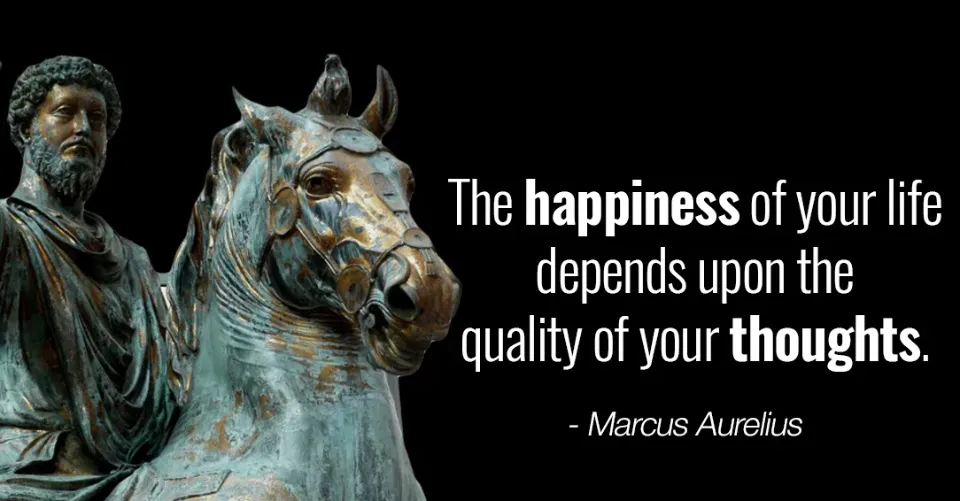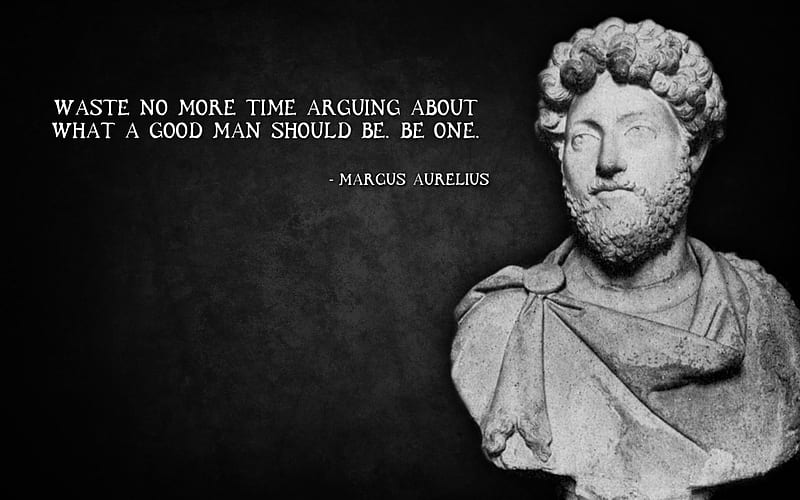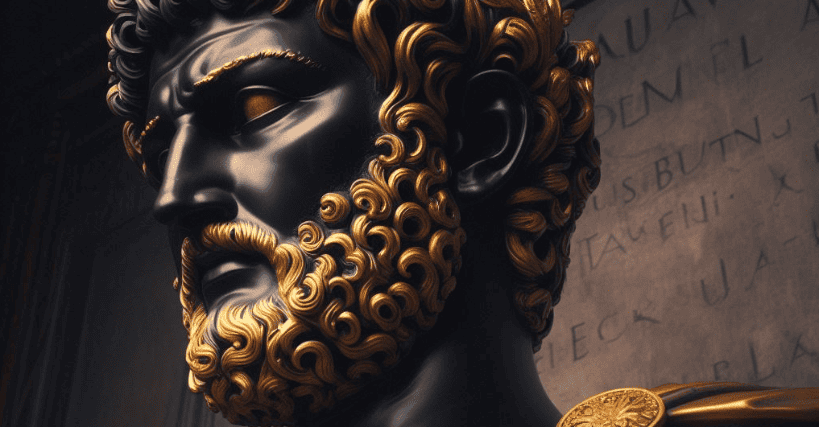
Modern Man’s Pursuit of Meaning: Stoicism and Marcus Aurelius in the Age of Disconnection
In an age marked by unprecedented technological advancement and seemingly limitless opportunities, there’s an ironic paradox: many modern men are feeling increasingly adrift and disconnected from a sense of purpose. In this digital age of hyper-connectivity, numerous individuals are turning to the timeless wisdom of Stoicism and the works of Marcus Aurelius, particularly his “Meditations,” in search of meaning and inner peace.
Marcus Aurelius, the Roman Emperor-philosopher, has provided solace and guidance through his enduring words, which resonate with the dilemmas faced by people in the modern era. In his “Meditations,” he extols the virtues of Stoicism and provides insight into finding meaning in a world that can often feel chaotic and meaningless.

In the modern world, many men grapple with existential questions and a sense of meaninglessness, often stemming from societal pressures, economic uncertainty, and the relentless pace of modern life. Marcus Aurelius, in his wisdom, offers guidance: “You have power over your mind – not outside events. Realize this, and you will find strength.” In a world where external circumstances can often feel beyond our control, Stoicism encourages the individual to seek mastery over their own thoughts and emotions, and ultimately, their own destiny.
The Stoic philosophy champions self-control, rationality, and the pursuit of virtue. In an age where instant gratification and external validation are rampant, these principles resonate with those who seek a deeper, more meaningful existence. Marcus Aurelius emphasizes this: “Very little is needed to make a happy life; it is all within yourself, in your way of thinking.”
The pervasive sense of disconnection that plagues modern society, despite its interconnectedness, is a common source of discontent. In his “Meditations,” Marcus Aurelius implores individuals to find meaning and connection within themselves: “Look well into thyself; there is a source of strength which will always spring up if thou wilt always look.”

The Stoic philosophy of gratitude is another powerful antidote to the modern sense of meaninglessness. Marcus Aurelius reminds us to be thankful for the present moment and to find joy in the simplest things: “When you arise in the morning, think of what a precious privilege it is to be alive – to breathe, to think, to enjoy, to love.”
Moreover, the Stoic concept of amor fati, or love of fate, encourages individuals to accept and embrace the events that unfold in their lives, both positive and negative. Marcus Aurelius writes, “The universe is change; our life is what our thoughts make it.” This notion empowers modern men to navigate the tumultuous currents of life with resilience and adaptability, finding meaning in the very act of living.

In an age where materialism and external success are often seen as markers of worth, Stoicism and Marcus Aurelius offer a profound reorientation of values. As the Emperor-philosopher notes, “It is not because things are difficult that we do not dare; it is because we do not dare that they are difficult.” By daring to confront their inner selves, modern men can discover the profound sense of purpose and meaning that often eludes them in the fast-paced, often superficial world.
In conclusion, the resurgence of interest in Stoicism and the writings of Marcus Aurelius is a testament to the timeless relevance of their teachings. In a modern age where many men grapple with the specter of meaninglessness, the Stoic philosophy serves as a guide to finding purpose and inner peace. As Marcus Aurelius reminds us through his “Meditations,” true strength and meaning are found within, and in mastering one’s own mind and reactions to the world. Stoicism, as embodied by Aurelius, continues to be a beacon of wisdom for those seeking a more profound connection with life and a sense of purpose in an ever-evolving world.










